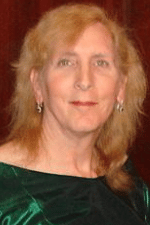Written by Austen Hartke from personal experiences beginning at a very early age, Transforming: The Bible & the Lives of Transgender Christians takes the reader on a deeply heartfelt path of discovery, first by examining the author’s struggle to determine who he is, then by exploring the religious rejection and condemnation that has overridden the message of scripture.
First published in 2018, the updated and expanded edition released this March includes a study guide and “new terminology that reflects the changing language of gender; up-to-date statistics on trans communities, and new materials for congregational study, preaching, and pastoral care.” A new foreword by Jamie and Rebekah Bruesehoff adds new relevance (the original edition’s foreword was by God and the Gay Christian author Matthew Vines), and the book ends with an afterword that is a conversation on pastoral care with Dr. Susannah Cornwall.
The work starts by examining the discomfort and objection of gender variance that is expressed by both society and religion. Where society has a patriarchal understanding of itself and makes the claim that it has always been this way and is “normal,” religion goes out of its way to menu-select specific passages of scripture that emphasize God’s design as “man first and woman second,” while ignoring other passages that instruct its followers to love and respect everyone equally.
Hartke discusses the many variations that make up the transgender community and includes those scriptural references to eunuchs that are used to condemn transgender individuals, and includes individuals with disorders of sex development.
Hartke breaks down the scriptural passages and filters out the social bias that has found its way into the text, examining how it can be read, applied and lived in today’s world.
The work also includes what Hartke calls “The Trans-Affirming Toolbox,” an excellent guide and resource for pastors and church leaders to use as they move congregations toward a more open and affirming environment that starts with Education.
Undeniably education is the most important first step in understanding what being transgender is, followed by Conversation, where Hartke acknowledges how difficult it is for those who are not in the transgender community to openly discuss the ideas and concepts of a gender conflict and the difference between biological sex and gender identity.
There is also a study guide with suggestions to be used by churches and faith leaders to encourage the discussion in a safe and comfortable way and compare the harsh and derogatory ideas surrounding the idea of gender variance against the ideas expressed in scripture.
The work has little technical jargon or lengthy clinical descriptions of gender variance, and is a sincere look into one person’s journey of discovery and recognition that there is a place for God in the transgender community.
Hartke’s book is an excellent resource for church leaders and members of any congregation who are looking for a clear, concise and easy-to-understand reference that describes what it means to be transgender and how one can be transgender and also be a believer in and follower of Christ.

Author and advocate Rev. Sarah Carpenter has served, trained and presented in various capacities at the University of Vermont, Human Rights Campaign (where she helped write a textbook on gender identity), Out in Scripture (a series on LGBT perspectives on the lectionary readings), Tiffany Club of New England, Empire Conference in Albany, N.Y., PFLAG National Convention, Philadelphia Transgender Health Conference, Dartmouth Medical School, Brown University, and Atlanta’s Paradise Conference. Her 2015 book “Freedom of Religion by Individual Choice,” discusses the American Founding Fathers’ positions on religion and politics.
